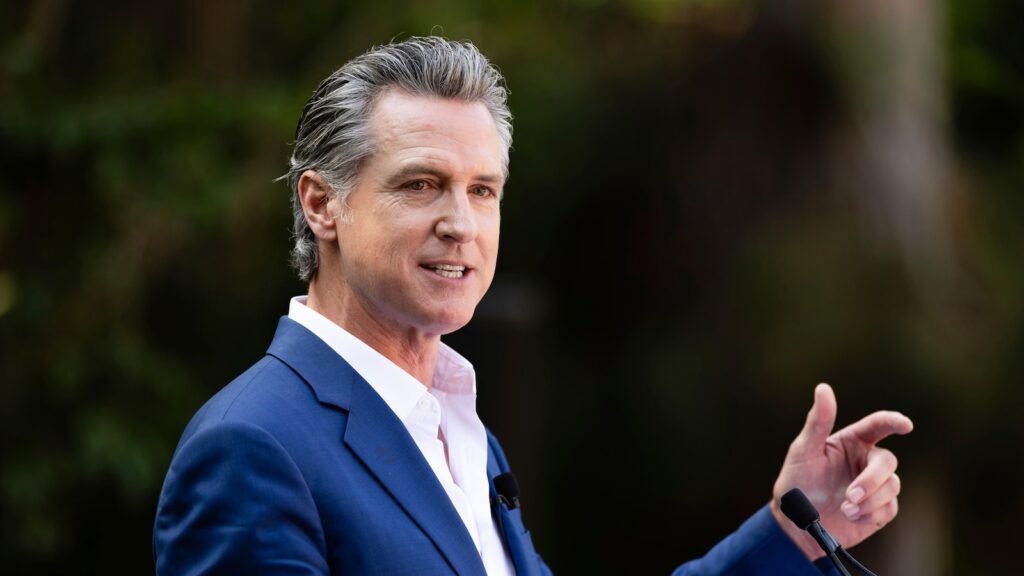SACRAMENTO, Calif. — California is leading the charge in regulating social media by passing a groundbreaking law aimed at protecting children from addictive content on platforms. Starting in 2027, social media companies will be prohibited from knowingly providing addictive content to minors without parental consent, thanks to a new law signed by Democratic Governor Gavin Newsom.
This law marks a significant step in the growing movement to safeguard children’s mental health and well-being in the digital age. The legislation follows similar initiatives in other states like New York and Utah, and aims to curb the negative impacts of social media addiction on young users.
What the New California Social Media Law Entails
The new law will require social media platforms to obtain parental consent before allowing minors to access content deemed addictive. This includes content that is recommended by algorithms designed to keep users engaged for prolonged periods, often to the detriment of their mental health. The law also includes specific restrictions on notifications and account settings for minors, adding an extra layer of protection.
Key Provisions of the Law:
- Parental Consent for Addictive Content: Platforms will need to ensure that parents give explicit consent before minors can access certain types of content.
- Time Restrictions on Notifications: Social media platforms will be prohibited from sending notifications to minors between 12 a.m. and 6 a.m., and again between 8 a.m. and 3 p.m. during school hours on weekdays.
- Private Accounts by Default: All accounts for minors will be set to private by default, limiting their exposure to potential harmful interactions.
This law builds on a similar 2022 California law that prevents platforms from using children’s personal data in harmful ways. The new legislation is an attempt to address the growing concerns about the negative effects of social media, including isolation, anxiety, and addiction.
A National Movement to Protect Children
California’s move follows in the footsteps of New York, which earlier this year passed a law allowing parents to block their children from seeing social media posts recommended by algorithms. Utah has also enacted laws aimed at limiting children’s access to social media, though these have faced legal challenges in court.
The issue of social media addiction in minors has been in the spotlight in recent months, especially after U.S. Surgeon General Vivek Murthy urged Congress to require warning labels on social media platforms regarding their effects on young people. His call has been supported by 42 state attorneys general, highlighting the widespread concern over this issue across the United States.
Governor Gavin Newsom’s Statement on Social Media Addiction
Governor Gavin Newsom emphasized the importance of this new legislation in combating the harmful effects of social media on children.
“Every parent knows the harms that social media addiction can cause to children — isolation, stress, anxiety, and endless hours of wasted time late into the night. With this bill, California will help protect children and teens from features designed specifically to foster these destructive habits,” Newsom stated.
His comments underscore the growing recognition that social media platforms often deploy tactics aimed at keeping users, particularly minors, engaged for longer periods, which can lead to serious mental health issues.
Controversy and Opposition
While many support the new law, it has also faced criticism from some quarters. Opponents argue that it could inadvertently block adults from accessing content if they fail to verify their age correctly. There are also concerns that requiring platforms to gather more information to verify users’ ages may compromise online privacy by encouraging the collection of additional personal data.
Moreover, critics worry that these measures may place an undue burden on social media companies and raise questions about how effectively the law will be enforced.
Defining “Addictive Content” and Its Implications
Under the new law, “addictive feed” refers to any website or application that recommends, prioritizes, or displays content continuously or simultaneously based on user information, including preferences and device data. This can include personalized news feeds, video recommendations, and suggested posts, all of which are typically generated by sophisticated algorithms.
The legislation aims to reduce the compulsive nature of these feeds, particularly those designed to keep young users hooked. However, there are exceptions to this rule, and how platforms will interpret and implement these restrictions remains to be seen.
The Road Ahead: What This Means for Social Media Platforms
With California being home to some of the world’s largest tech companies, including Facebook (Meta), Google, and YouTube, this law could set a precedent for other states or even prompt federal action. Companies will have until 2027 to comply with the new regulations, and it is expected that they will need to make significant changes to their algorithms, notification systems, and privacy settings for minors.
This law also adds to a growing list of challenges facing social media giants as they navigate increasing scrutiny over their business practices, particularly when it comes to the mental health and safety of young users.
Conclusion: A Step Toward a Safer Online Environment for Children
The passing of this new law is a monumental step toward addressing the impact of social media addiction on children. With growing concerns about the role of social media in the lives of young people, states like California are taking proactive steps to safeguard minors from the potentially harmful effects of these platforms.
While the law may face some challenges in its implementation and enforcement, it sends a clear message that protecting children’s mental health is a priority. As other states watch California’s progress, we may see a broader movement to regulate the content and features that keep children engaged on social media for too long.
